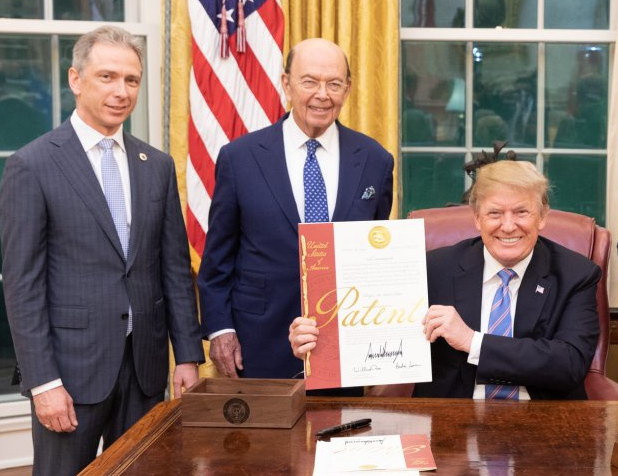

THE DEMISE of patentability of software in the United States is mostly being ignored by the USPTO, which prefers to ignore what courts are saying and carry on issuing software patents. The same thing has been happening at the European Patent Office (EPO) and we shall get to that in a moment. There's a bit of a "shared struggle" on both sides of the Atlantic, impacting software developers in Europe and the United States. If the U.S. Patent and Trademark Office carries issuing all those abstract patents -- as does the EPO -- what will be the impact on presumption of validity of US and European Patents (EPs)? This is a key question which is increasingly being raised by technology-centric groups.
"Iancu, the current Director of the USPTO, has been acting like the patent trolls' mole or at least their apologist.""Try the Newly Upgraded Anticipat to Complement Your Patent Prosecution Practice," Anticipat wrote a few days ago, ousting itself for what it really is other than an anti-PTAB 'tank' (or propaganda mill); it just targets trolls and prosecutors looking for people to blackmail. They know that their chances in courts or in the Patent Trial and Appeal Board (PTAB) are rather slim and therefore they try to assess risk and cost (an appeal to the Federal Circuit can be rather expensive, perhaps requiring millions of dollars set aside for legal bills). "Harness the power of patent analytics to make better-informed decisions using the power of aggregate appeals data," they said. They're not alone in this 'business' (of litigation). Sadly, however, today's leadership at the USPTO sympathises with them.
Neil Wilkof has just published something titled "The IP term (thus far) of the millennium: the curious story of the adoption of 'patent troll' and 'internet trolling'" in which he cites the father of patent trolling. Well, first of all, there's no such thing as "IP"; Wilkof could at least correct this misleading terminology and speak of patents instead. The only thing a "patent troll" and "internet trolling" have in common is that they engage in nothing constructive, just harassment.
Iancu, the current Director of the USPTO, has been acting like the patent trolls' mole or at least their apologist. He has attracted some negative comments for this attitude of his and a few days ago Steven Seidenberg from IP Watch echoed the rhetoric of Iancu with a headline like, "Do Patent Trolls Exist?"
That's the "teach the controversy" propaganda line; if a patent troll is defined as a firm which practices nothing but lawsuits, then the existence of it is not disputable; it is measurable, too. The name used to describe it may vary (used to be "shark"), but this phenomenon is very much real and it is extremely problematic.
From Seidenberg's introductory paragraph:
They are called many things. Patent Assertion Entities (PAEs), Non-Practicing Entities (NPEs), Patent Trolls, and on occasion, names not suitable in polite company. They often are accused of harming innovation and the economy, while providing nothing useful in return. They, less often, are said to promote innovation, in part by helping small inventors monetize their discoveries. Two recent academic studies attempt to shed light on this dispute, but their findings seem contradictory – at least at first.
epo.org link) on Friday just to peddle some fluff/puff pieces); at the same time EPO corruption ruins ILO/ILOAT which are about 100 years old.
epo.org link) the EPC, which is routinely violated by the EPO. Who benefits from this?
The USPTO released the final version of its 2018-2022 Strategic Plan today. I previously wrote about the flaws in the draft strategic plan. The draft plan did, however, at least note the importance of stakeholder engagement. To assist in this goal, the Office asked for comments on the draft.
[...]
The problem is that a detailed comparison of the draft and final plans reveals that a total of two substantive changes were made to the text provided for comment. In one, the final plan notes that ensuring trademark validity is important and announces plans to regularly audit and “de-clutter” the trademark registry. The other change recognizes that user interface is important when rolling out new tools to examiners.
Earlier this week, on Monday, November 26, 2018, Andrei Iancu, Under Secretary of Commerce for Intellectual Property and Director of the United States Patent and Trademark Office, delivered remarks to the 10th Annual Patent law & Policy Conference at Georgetown University law School. In his remarks Director Iancu again said what he has been saying for some time — the USPTO is working on fresh guidance relating to patent eligibility for computer implemented innovations (i.e., software related inventions). Director Iancu’s remarks gave a first look at what his reforms will look like, and by all indications these changes will be extremely innovator friendly.